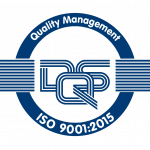Search Other Materials
PVC Characteristics
PVC (polyvinyl chloride) is one of the most widely used thermoplastics on the market. Its superior combination of properties and its low cost make it an easy choice for many applications.
PVC offers excellent chemical and flame resistance, strength-to-weight ratio and dielectric properties along with good tensile, flexural and mechanical strength, low moisture absorption and exceptional dimensional stability. In addition, it is easily altered by the addition of plasticizers, impact modifiers and other ingredients.
PVC can be used in the most demanding applications including food processing and is available in both rigid and flexible formulations. Characteristics include:
Economical
- Easily welded or bonded
- Good dimensional strength
- Resistant to chemicals and corrosion
- Good electrical and thermal insulator
- Low water absorption
- UL94-VO fire rating
- FDA approved for food contact
Applications for PVC
- Food and beverage grade tubing
- Semiconductor equipment
- Electrical and cable insulation
- Municipal and industrial piping systems
- Chemical processing
- Pumps, valves and seals
- Water and waste treatment equipment
- Fume hoods
Contact a Dielectric Manufacturing knowledge expert to discuss the use of PVC for your application. Call 800-367-9122 or email sales@dielectricmfg.com.
We also are a distributor of PVC material. Contact us to discuss how we can fulfill your material needs.
Dielectric Manufacturing, Richfield, Wisconsin USA dielectricmfg.com PVC Material Properties Provided By Dielectric Manufacturing, Richfield, Wisconsin
Property Metric units English units
General
Density 1.3e3 - 1.49e3 kg/m^3 0.047 - 0.0538 lb/ft^3
Mechanical
Yield Strength 4.14e7 - 5.27e7 Pa 6 - 7.64 ksi
Tensile Strength 4.14e7 - 5.27e7 Pa 6 - 7.64 ksi
Elongation 0.4 - 0.8 % strain 40 - 80 % strain
Hardness (Vickers) 1.22e8 - 1.55e8 Pa 12.4 - 15.8 HV
Impact Strength (un-notched) 1.9e5 - 2e5 J/m^2 90.4 - 95.2 ft.lbf/in^2
Fracture Toughness 3.63e6 - 3.85e6 Pa/m^0.5 3.3 - 3.5 ksi/in^0.5
Young's Modulus 2.48e9 - 3.3e9 Pa 0.36 - 0.479 10^6 psi
Thermal
Max Service Temperature 50 - 65 °C 122 - 149 °F
Insulator or Conductor Insulator Insulator
Specific Heat Capability 1e3 - 1.1e3 J/kg °C 0.239 - 0.263 BTU/lb. °F
Thermal Expansion Coefficient 9e-5 - 1.8e-4 strain/°C 50 - 100 µstrain/°F
Eco
CO2 Footprint 1.85 - 2.04 kg/kg 1.85 - 2.04 lb/lb
Recyclable Yes Yes




